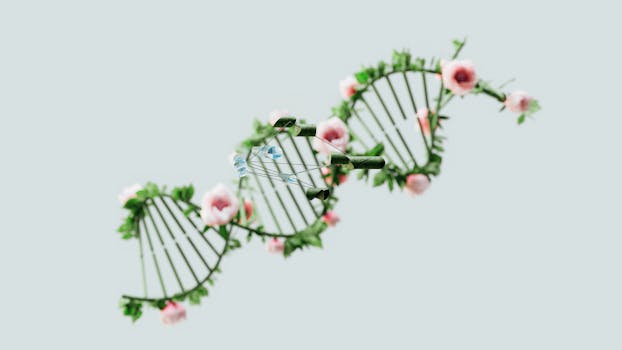
The Role of Genetics in Human Health and Disease
Genetics in Human Health and Disease is a vital aspect of modern medicine, as it helps us understand the underlying causes of various health conditions. Genetic factors can significantly influence an individual’s risk of developing certain diseases, and understanding these factors can help prevent and treat these conditions more effectively.
Introduction to Genetics

Genetics is the study of heredity and variation, which involves the transmission of traits from parents to offspring through the transmission of genetic information. This information is encoded in the DNA (deoxyribonucleic acid) molecule, which is a long, double-stranded helix that contains the instructions for the development and function of an organism.
The human genome consists of approximately 20,000-25,000 protein-coding genes, which are the basic units of heredity. These genes provide the instructions for the production of proteins, which are the building blocks of all living organisms. Genetic variations, such as mutations and polymorphisms, can occur in these genes, leading to changes in the function or expression of the corresponding proteins.
The Role of Genetics in Disease

- Single-gene disorders, such as sickle cell anemia and cystic fibrosis, which are caused by mutations in a single gene.
- Polygenic disorders, such as heart disease and diabetes, which are influenced by multiple genetic and environmental factors.
- Complex diseases, such as cancer and psychiatric disorders, which are influenced by a combination of genetic and environmental factors.
Genetic testing can help identify individuals who are at risk of developing certain diseases, allowing for early intervention and prevention. Additionally, genetic information can be used to develop personalized treatment plans, tailored to an individual’s specific genetic profile.
Genetic Technologies and Their Applications

Recent advances in genetic technologies have revolutionized our understanding of the genetic basis of disease. Some of these technologies include:
- Genome-wide association studies (GWAS), which involve scanning the entire genome to identify genetic variants associated with a particular disease.
- Next-generation sequencing (NGS), which allows for the rapid and cost-effective sequencing of entire genomes.
- CRISPR-Cas9 gene editing, which enables the precise modification of genes to correct genetic defects.
These technologies have numerous applications in medicine, including:
- Genetic diagnosis, which involves the use of genetic testing to diagnose genetic disorders.
- Personalized medicine, which involves the use of genetic information to tailor treatment plans to an individual’s specific needs.
- Gene therapy, which involves the use of genes to prevent or treat diseases.
Conclusion

In conclusion, genetics play a vital role in human health and disease, and understanding the genetic basis of disease is crucial for the development of effective prevention and treatment strategies. Recent advances in genetic technologies have revolutionized our understanding of the genetic basis of disease, and have numerous applications in medicine. As our understanding of genetics and its role in disease continues to evolve, we can expect to see significant advances in the prevention and treatment of genetic disorders.





